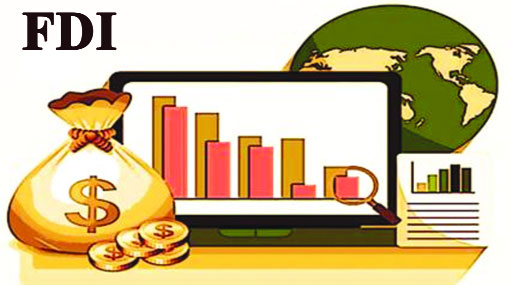US leads FDI in BD India falls behind
Rafiqul Islam Azad: When it comes to Foreign Direct Investment (FDI Stock) in Bangladesh, the United States and the United Kingdom are the top investors, each with more than three billion dollars in FDI stock. They are followed by Singapore, South Korea, China, the Netherlands, and Hong Kong, each with over one billion dollars invested in Bangladesh in 2023. However, India does not appear on the list of countries with more than a billion dollars in FDI. Malaysia leads among countries with investments under a billion dollars in Bangladesh last year, with India following Malaysia in terms of FDI.
These details are derived from the 2023 FDI Stock data provided by the Bangladesh Bank, the country’s central bank.
Despite its growing economy, large domestic market, and cheap labour, Bangladesh has yet to attract significant foreign investment. As a result, the FDI trend in the country has been declining. In 2023, Bangladesh received a total of 3.004 billion dollars in FDI, a decrease from 3.478 billion in 2022. This represents a decline of 474 million dollars year-over-year. Similarly, the FDI stock at the end of 2023 was 20.549 billion dollars, a decrease of 206 million dollars from the 2022 stock of 20.755 billion dollars.
The United States holds the largest FDI stock in Bangladesh at about 3.936 billion dollars. Despite a slight decline in recent years, most of this investment has gone to the gas and petroleum sector, totaling 2.861 billion dollars. Other significant sectors include insurance with 268 million dollars, banking with 214 million dollars, electricity with 146 million dollars, textiles with 140 million dollars, and non-banking financial institutions (NBFIs) with 132 million dollars. The United Kingdom is the second-largest investor in Bangladesh, with a total FDI stock of 3.042 billion dollars by the end of 2023. The UK investment is primarily focused on the banking sector with 1.582 billion dollars, followed by textiles with 614 million, food with 359 million, chemicals with 147 million, electricity with 137 million, and other services with 110 million.
Singapore’s FDI stock in Bangladesh amounts to 1.558 billion dollars, with the largest investment in the power sector at 437 million dollars. Other key sectors include other services with 434 million dollars, telecommunications with 254 million dollars, textiles with 123 million, and agriculture and fisheries with 104 million.
South Korea’s total FDI stock in Bangladesh is 1.493 billion dollars, with the majority, or 1.37 billion dollars, in the textile sector. Additional investments include 175 million dollars in leather and leather products, and 139 million dollars in banking.
China’s FDI stock ranks fifth with 1.374 billion dollars, largely in the electricity sector with 758 million dollars. Other notable sectors include services with 286 million dollars and textiles with 212 million.
The Netherlands has invested 1.329 billion dollars in Bangladesh, with the largest portion going to the food sector at 437 million dollars. China’s FDI stock of 286 million dollars is in other services, and 212 million in textiles.
Hong Kong’s FDI stock is 1.275 billion dollars, primarily in textiles with 639 million dollars, electricity with 220 million dollars, other services with 160 million, and banking with 109 million.
Among countries with FDI stock below one billion dollars, Malaysia leads with 856 million dollars, while India’s stock is 782 million dollars. Other notable countries include Australia with 650 million dollars, Japan with 534 million dollars, and the UAE with 448 million dollars.
The largest FDI stocks by sector include textiles with 4.28 billion dollars, gas and petroleum with 3.768 billion, banking with 2.706 billion, and electricity with 2.534 billion dollars. Additionally, telecommunication has 1.327 billion dollars, food has 900 million, trade has 555 million, and chemicals and petrochemicals have 516 million dollars.
President Joe Biden tests positive for COVID-19 while campaigning in Las Vegas, has ‘mild symptoms’
International Desk: President Joe Biden tested positive for COVID-19 while traveling Wedne…








